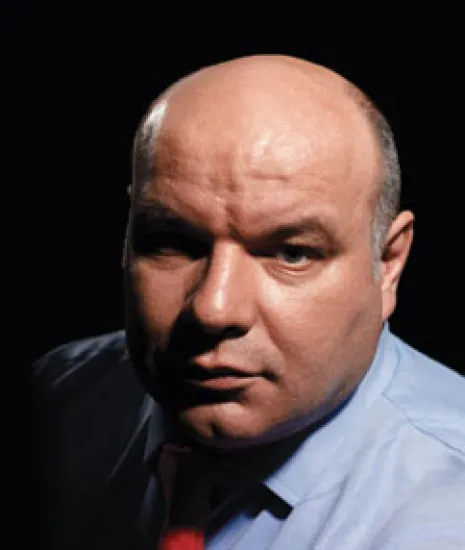Early last year, as the collapse of the U.S. mortgage market continued to send shock waves around the world, with global banks writing down tens of billions of dollars in credit-related losses and stock markets experiencing jaw-dropping volatility, UBS unveiled a new approach to its equity research coverage in Europe. In addition to issuing their traditional 12-month recommendations, analysts were instructed to highlight three to five stocks in their sectors that were likely to outperform or underperform their benchmarks over the following 30 to 60 days.
Short-term calls serve the needs of the most active (and profitable) clients — particularly hedge funds — by ensuring that they have a steady stream of trading recommendations, according to Nicholas Pink, UBS’s London-based director of European equity research. “Many clients measure performance in relative terms, and this therefore matches their view of the world,” he says.
The new strategy was also a response to a rapidly deteriorating economic environment as the industrialized nations of the world were hurtling headlong into the worst recession in nearly 80 years and many of the investment banks themselves faced a very uncertain, and unnerving, future. The situation worsened as the year progressed, with firms facing quarter after quarter of rising write-downs, falling profits, layoffs and cutbacks. Eventually, some of the biggest, including UBS and Citigroup, sought government bailouts; others, such as Lehman Brothers Holdings and Merrill Lynch & Co., ceased to exist — the former declaring bankruptcy and the latter agreeing to be acquired by Bank of America Corp., which last month turned to the U.S. government for a massive aid package.
Many investors simply pulled their money out of the market. Through the end of the third quarter, the combination of net outflows and lower stock values — the MSCI Europe index plunged 29.7 percent in local currency terms — resulted in a year-over-year loss of €1.07 trillion ($1.55 trillion) in investment assets, according to the European Fund and Asset Management Association, a Brussels-based trade organization.
Those who opted to stay invested have to move in and out of positions quickly, and they place a high premium on research that makes sense of, and helps them make money in, this chaotic environment. The analysts who do the best job of providing exactly that kind of information can be found at UBS, which leads Institutional Investor’s All-Europe Research Team for an eighth consecutive year. The big Swiss bank captures 30 total positions — down from 33 last year — including 13 teams voted No. 1 in their sectors, up from 11 in 2008. The Banc of America Securities–Merrill Lynch team rises one notch to second place, winning 27 team positions (up from 25), including 11 at No. 1 (up from eight). Citi, with 26 team positions (four fewer than last year), drops one spot to third place.
(Click on this link, The Best Analysts of the Year, to view profiles of the winning research teams in 32 industry sectors, five countries and five macroeconomic disciplines.)
J.P. Morgan Securities is the biggest gainer among the top ten firms, vaulting from No. 8 to No. 4. The firm, which picked up five European equity analysts following JPMorgan Chase & Co.’s acquisition of Bear Stearns Cos. last spring, garners 24 total team positions, up from 15 in 2008. Credit Suisse, with 18 positions (down from 24), slips one spot to fifth place. The results are based on responses from more than 1,300 money managers at 541 institutions managing an estimated $6 trillion in European equities. Click on this link, 2009 All-Europe Research Team , to see the complete survey results.
The turmoil in Europe’s financial services industry is reflected in the appearance of new names — and the absence of familiar names — in this year’s ranking of top firms and team leaders. Of the 44 analysts who lead or co-lead top-ranked squads, nearly half — 19 — are new to the No. 1 spot. Some of the team leaders making their first appearance in the winner’s circle are featured in the photographs that accompany this article.
Among those pictured is Peter Welford, leader of the top-ranked team in the Biotechnology sector. Welford began 2008 at Lehman Brothers, moved to Nomura International after the Japanese brokerage acquired Lehman’s European equity and advisory units in October, then in November joined Jefferies & Co. in London.
“I decided a move away from a bulge-bracket bank to a smaller house would be a welcome change,” Welford says. Jefferies offered the analyst something that Nomura could not: a North American presence from which he could seek assistance in covering the increasingly global biotech universe. In addition, the smaller firm has been rapidly expanding its European operations. Last but not least, Welford says, “I liked the culture.”
Another new face at No. 1 is Sarah Deans, who covers Accounting & Valuation for J.P. Morgan. Deans impressed clients with her no-holds-barred coverage of the political pressure the International Accounting Standards Board was under to relax its rules on mark-to-market accounting, which require firms to price financial instruments at their current market value even if they have no intention of selling them. Many market observers believe these rules were at least partly responsible for triggering the global economic meltdown. Not Deans, who wrote in a July research report, “Blaming fair-value accounting for the credit crisis is a lot like going to a doctor for a diagnosis and then blaming him for telling you that you are sick.” On the contrary, she noted, “enhanced disclosures have helped markets quickly identify where problems exist.”
In October, just one day after the IASB agreed to allow exceptions to its rules, Deans published a scathing assessment: “This action establishes an unfortunate precedent of political considerations over-riding the need for high-quality accounting standards, and of suspension of due process.” The new standard, she wrote, “reduces consistency, comparability and transparency of financial statements, which may reduce investor confidence rather than enhance it.”
Restoring such confidence is essential if firms are to entice investors back into the market. Research directors say they are up to the challenge, even though many of them have fewer resources at their disposal as banks cut staff and scale back coverage to bolster their bottom lines.
“When we had to cut costs, we did not salami-slice each team and destroy morale throughout the entire department,” explains Richard Taylor, who became Citi’s head of European equity research in April. Instead, the firm chose to reduce its coverage of less-profitable sectors, such as Paper & Packaging and Leisure & Hotels, and shifted resources to more-promising areas, such as emerging markets. Citi analysts now cover 655 companies in Western Europe, down from 735 one year ago, and 194 emerging-markets stocks, up from 159. “Overall we saw only a 5 percent reduction in stock coverage,” Taylor says.
UBS has made similar changes. “We had to make commercial decisions about our coverage,” says European equity research director Pink, citing the firm’s decision to discontinue coverage of U.K. investment trusts after trimming its research staff “by about 5 percent.”
Nomura Holdings, having seized what chief executive officer Kenichi Watanabe described as “the opportunity of a lifetime” by acquiring Lehman’s European operations, is taking the opposite approach. Despite reporting a record loss of ¥342.9 billion ($3.8 billion) in the fourth quarter, part of which was attributable to acquisition costs, Japan’s biggest brokerage is intent on expanding the considerable European toehold it acquired last fall.
Paul Norris, Lehman’s former head of European equity research, who now holds a comparable post at Nomura, says he is in the process of adding analysts and expanding coverage from 300 stocks to 360 by next month and to 520 by March 2011. “Reporting to a Japanese parent is very different,” says Norris, a 14-year Lehman veteran. “We’ve got the luxury of a parent that’s willing to take a five-year, and not just a one-quarter, view on investing.”
Taking both a near- and far-term approach — keeping abreast of changes in a highly volatile environment while remaining optimistic about better times ahead — appears to be the best way for analysts to cope with the current crisis.
“We lost some colleagues and friends along the way in 2008, but this remains a good career,” says Citi’s Taylor. “This continues to be an exciting business to be in.”






